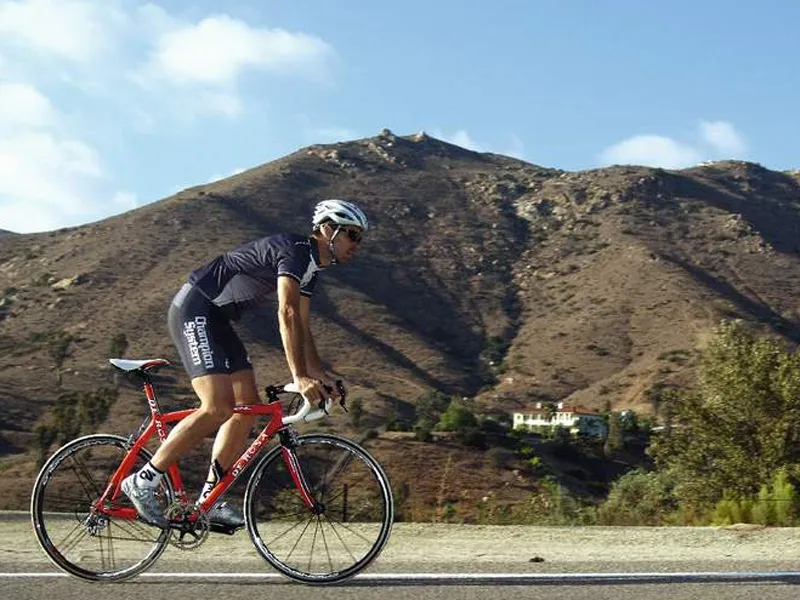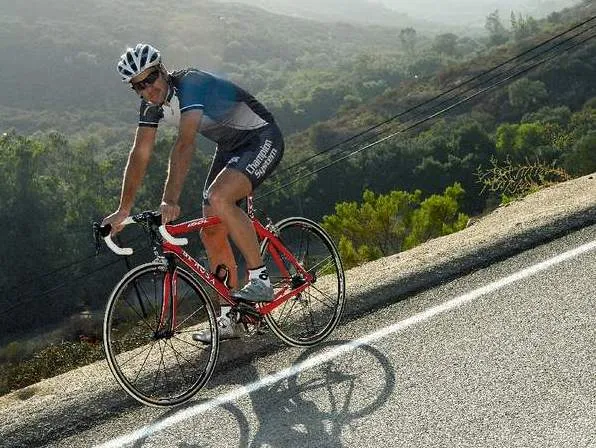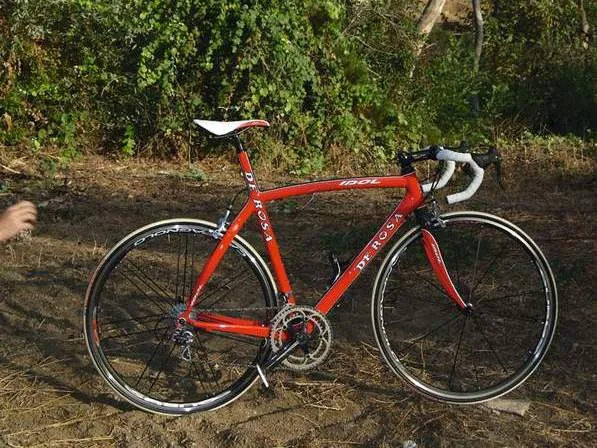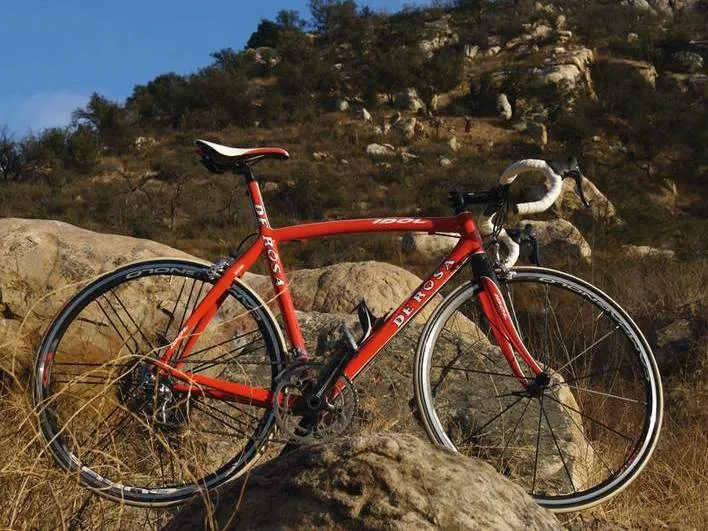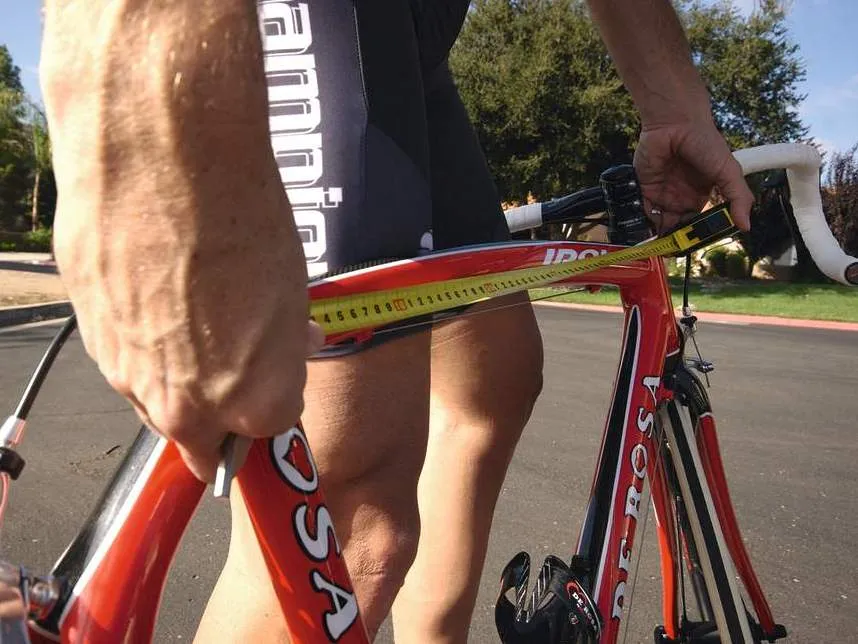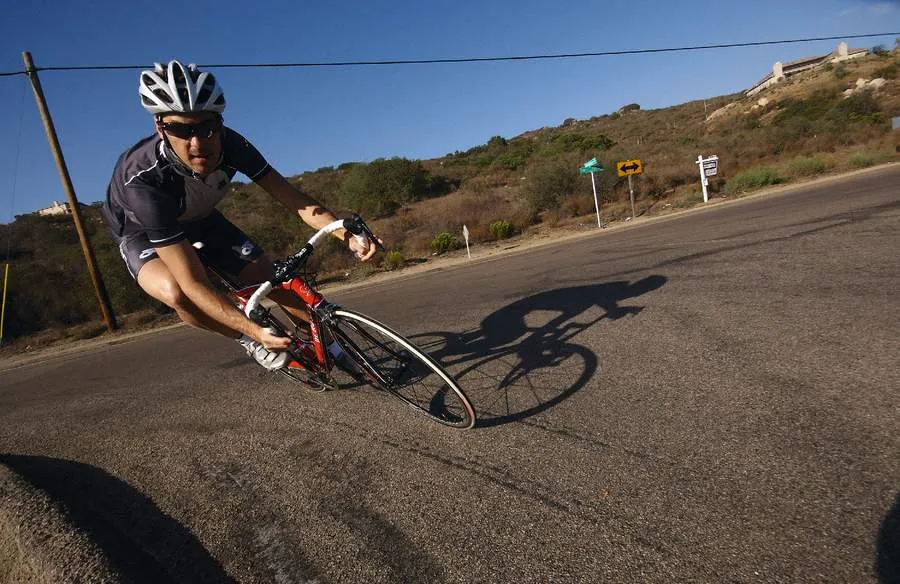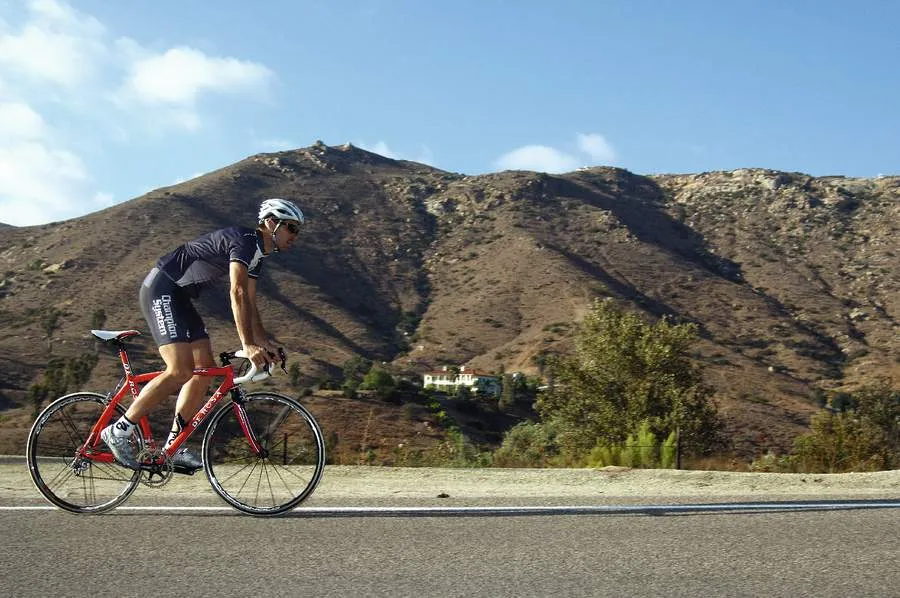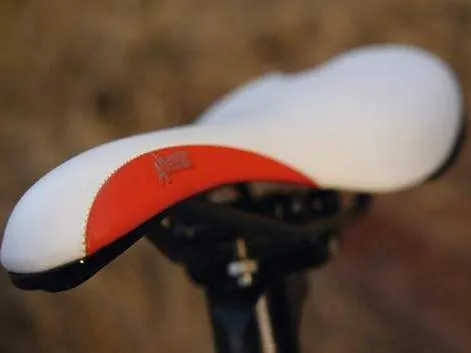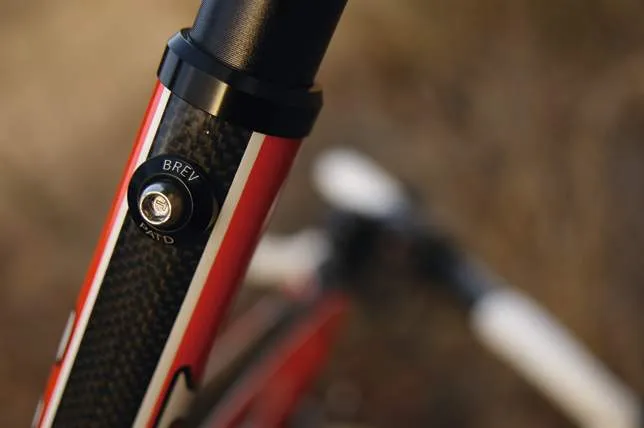An idol is something to be worshipped, adored, something to which one is devoted. This leads me to believe that the De Rosa board members must have been in a very confident mood the day they decided to name their new road model just that.
If creating a two-wheeled idol requires years of manufacturing experience and race-tested success, the De Rosa brand ticks all the boxes. Founder Ugo De Rosa has been making bikes under his own name since the early 50s. His steeds have been ridden to victory by the likes of Francesco Moser, Moreno Argentin, Evgeny Berzin, Serhiy Gonchar, Romans Vainsteins and Francesco Casagrande.
And in case that's not enough of a pedigree, from 1973 to 1978 De Rosa also made bikes for none other than Eddy "The Cannibal" Merckx. He and his Molteni team-mates put the bikes to good use, winning the Giro d'Italia, Milan-San Remo, the World Championship and the Tour de France.
It's an impressive roll call of honour by anyone's standards, but that's all in the past. My aim was to find out if the De Rosa Idol could live up to its boastful name.
Frame: Stiff, good looking, but get the size right
First impressions were good: its triple monocoque structure, without forks, weighed only 1,100g. The frame tubes all met and blended perfectly together in a modern design where smooth lines were accented by a beautiful red gloss. A black carbon racing stripe that seemingly cut the frame in half lengthways only added to the bike's arresting look. If nothing else, it was easy on the eye.
I took the Idol just outside of San Diego, California, to a small city called Alpine. I'd trained there at a US national cycling team camp before preparing for the 1996 Olympic Games so I knew exactly where to head to hit the best climbs.
As eager as I was to get going on the bike, I still had to get my riding position set up correctly, and that meant adjusting the saddle height.
The Idol has an integrated seatpost. A bolt screws through this and into the mini seatpost attached to the saddle. I found this very easy to use, but the amount of saddle seatpost adjustment available was a little limited for my taste. There were only about 2cm of positive extension available and this was just shy of what I needed to get the saddle to my ideal height.
Ride: Superbly balanced all-round performance
Once rolling, I headed straight up a hill and the Idol felt completely at home. The frame was superbly stiff and each stroke came with ease as I stood on the pedals. I put the pressure on with some uphill sprints but the bike charged ahead - even in the big chainring. There was no hint of loss of energy from sway in the bottom bracket.
One factor that can certainly take some credit for the impressive forward propulsion is the Idol's stiff front end. Even when I yanked back and forth on the handlebars, the headtube and toptube stayed perfectly in line.
The bike was easy to ride on the flat too. Despite skirting the perimeter of a nudist camp on the test drive, my mind remained firmly focused on the strong-yet-uncannily-compliant De Rosa.
Its frame is very narrow and only bulges out at the point where it connects with the wheels. This arrow-like economy of bulk makes the Idol look speedy even when motionless.
This streamlined look is enhanced by the oversized chainstays and the subtly arched toptube. Both contribute to the overall strength of the ride, making it ready to kick into warp speed at a moment's notice.
Changing speed was no trouble and the only limiting factor was my legs. When I applied full torque on the Deda Ultra carbon stem it obstinately refused to budge. This lack of movement meant that when I pulled on the Deda Glare bars, all my strength, including that of my upper body, was focused on turning the cranks. In just a few pedal strokes I found myself shifting up a gear and before I knew it I'd shifted up again, such was the response of the bike. If ever a road bike could pull off a wheelspin, surely it would be the De Rosa.
After all the hard work on the climbs I felt like some fun on the descents and the Idol didn't let me down. It rode like a BMX. Jumping, changing direction, diving into corners - everything was effortless. The faster I descended, the more the Idol seemed to grip. Not even a full aero tuck with my hands next to the stem could induce a wobble from this rock-solid frame.
From my aero tuck I moved straight into a no-hands position - none of which rattled the Idol. It rode as though it knew what to do without my direction. Diving into the hairpins, the Idol entered the corners with as much enthusiasm as it came out of them. A little press on the handlebars during the turn and the bike carved in just as it should. All it took was a small weight adjustment coming out of the corners and the bike stood up, ready to tackle the next obstacle.
Equipment: Well thought out package complements fantastic frame
The Campagnolo Eurus G3 wheels put in a good all-round performance. Weighing just 1,550g, they were great on the climbs, descents and corners. The front wheel was radially spoked with a 26mm profile and the rear wheel was radial on one side and two-cross on the drive side. The rear wheel featured a rather interesting design quirk in having the spokes grouped into threes on the rim rather than being evenly spaced.
Overall I found they rolled nicely and were just the right stiffness. The build quality was impressive too. They were sturdy, even when I was jumping curbs. I'd be happy to ride them in a wide variety of events.
The handlebars are satisfyingly wide and flat on the tops, but when I tilted them down to feel more comfortable on the drops I found the flat section of the tops was at an uncomfortable angle. That said, once you find the right position for you, I can't imagine a better combination of tops and drops - great for both sprinters and out-of-the-saddle musclemen.
Usually when I try out a bike for the first time the saddle is one of the first things I notice. In the case of this De Rosa, however, throughout well over an hour's riding, I remained blissfully unaware of what was supporting my behind. The 270g Fizik Aliante was so comfortable that I didn't even notice it. True, it's not the lightest of saddles, but the comfort if afforded me was more than worth its weight.
I mentioned the Idol's limited amount of seat height adjustment earlier. This is worth bearing in mind when chosing the correct frame size. I made the mistake of relying on a geometry table on the De Rosa website.
While it can give you an idea of what frame size you'll need - the frame I tested measured 67cm from the centre of the bottom bracket to the top of the seatpost - I found it confusing. And in any case, there's nothing to beat trying a bike out in person for size. The Idol comes in six sizes so there's bound to be one to suit you.
Also worth noting is that the seatpost did move a tiny amount, and due to the Idol's unique seatpost design you're bound to use the components supplied. The movement was the result of the smallest of gaps needed to enable the fastening bolt to pass through the frame to the seatpost. I felt a little nudge when getting on the bike, but nothing while riding, so it's worth trying the bike out for yourself to see if this troubles you. That said, De Rosa did check other Idols for this and could not find the same problem, so it could have been a one-off.
With the hard work over, it was time to get the Idol to pose for its close-up. Procycling's photographer and I braved a snake-infested field to find the perfect location for the shot and I set about propping the bike up on one pedal with the assistance of a rock. We hope you like the results of this shoot - at the bottom of the page - as it wasn't without consequence. After just a few snaps of the camera's shutter, the bike tumbled off the rock, over some others and landed ungracefully in some mud. So, is the De Rosa Idol something to be worshipped? Even after such an undignified end to the photo shoot, I can answer with a resounding "yes". From the beautiful colour to the gorgeous lines of the tubes, this bike demands attention. For this test, even though I didn't have the form I'd found at the 1996 Olympic Road Race, the Idol rode like a race-winner. And I only came fourth in 96! If you're looking for a bike to believe in, this could be it.
Summary
With a sexy red gloss paintjob and a particularly sleek-looking frame, the De Rosa Idol is a real head-turner. But it's got more than just looks... Its superb stiffness means not a drop of your energy is wasted and it's got a wicked turn of speed on it too. The Idol is such an easy ride that you have to wonder whether it actually needs someone to steer it at all. And on top of that, it's comfortable. The seatpost is slightly limiting, but get the right size frame for you and we defy you not to like this bike.
